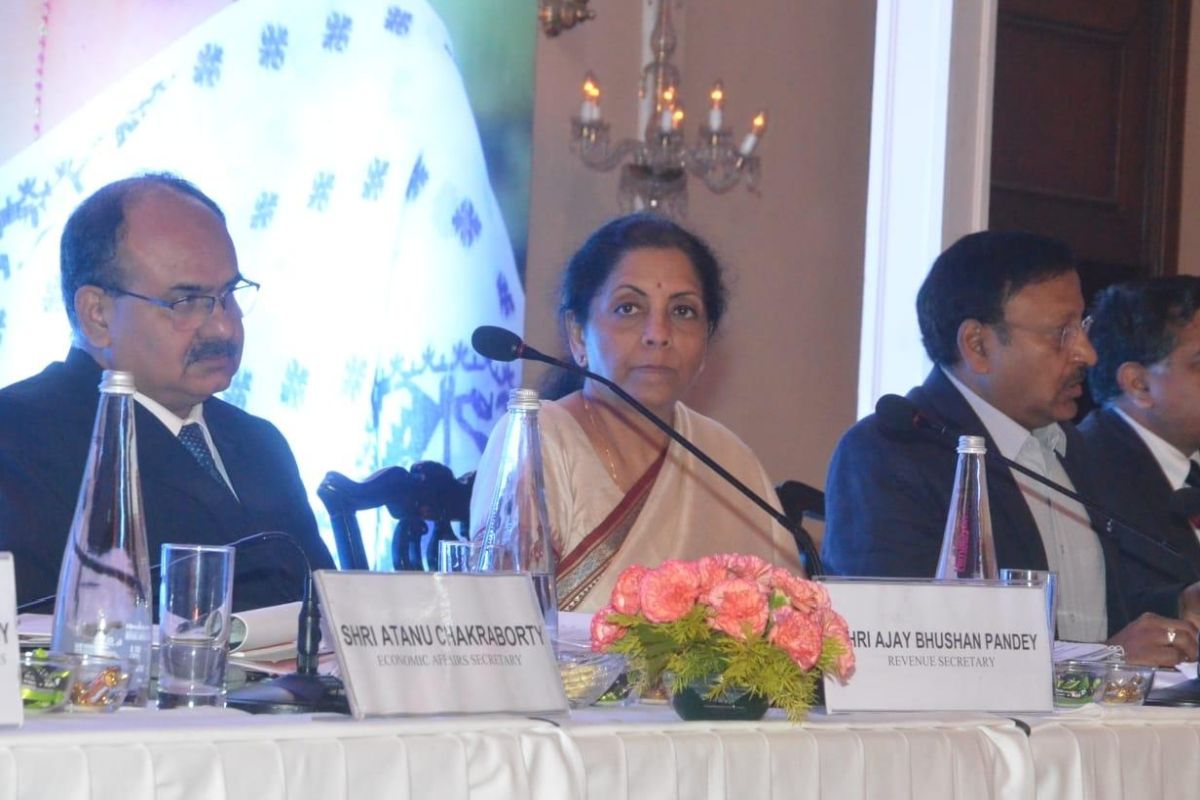Centre raises MSP for Copra for 2025 season
The Cabinet Committee on Economic Affairs, on Friday, gave its approval to the Minimum Support Price (MSP) for copra for 2025 season.
The Oxfam Report specifically recommended higher support for programmes like creches, sanitation, domestic water supply and kitchen gas stoves as well as other schemes which help women to save time and avoid too much fatigue in daily work.

Union Finance and Corporate Affairs Minister Nirmala Sitharaman. (Photo: IANS/PIB)
An important aspect of budget is the extent to which it contributes to welfare, security and empowerment of women and girls. This can be discussed at two levels. Firstly, there are those schemes and programmes which contribute directly to the welfare of women. Secondly, there are those aspects of development which can save the time women spend on daily routine work. As was emphasised in the recently released Oxfam Inequality Report 2020, this too can be very important as it enables women to participate in wider social and economic work.
The Oxfam Report specifically recommended higher support for programmes like creches, sanitation, domestic water supply and kitchen gas stoves as well as other schemes which help women to save time and avoid too much fatigue in daily work. At the same time training programmes which enable this wider participation are also important. In addition, support for girl students is also very important.
Advertisement
Also we should remember to look at not only the allocations for the new financial year but we should also look at the utilization of the previous year’s budget, and at the revised estimates (REs) that were prepared later in the year. One important aspect of the Union Budget from this perspective is the overall size of the budget allocation for the Ministry of Women and Child Development. The original budget allocation or budget estimate (BE) in the previous year 2019-20 for this Ministry was Rs. 29,165 crore.
Advertisement
However, while preparing RE this was reduced to Rs. 26,185 crore. This was a significant reduction. In BE for 2020- 21 this has been raised to Rs. 30,007 crore, but compared to previous year’s allocation, this is only a marginal rise and probably does not even cover the impact of inflation. Now let us look at some specific schemes and programmes.
While the BE for the National Creche Scheme for 2019-20 was Rs. 50 crore in 2020-21 this has been raised to Rs. 75 crore. However, this is still much lower than the actual expenditure on this scheme in 2015-16 which was Rs. 133 crore. An important scheme for the health of adolescent girls is Sabla. In BE 2019-20, the allocation was Rs. 300 crore but this was cut by as much as a half and the RE was only Rs. 150 crore.
The BE in 2020-21 is Rs. 250 crore which is still less than the BE for 2019- 20 and much less than the actual expenditure of Rs. 622 crore in 2014- 15. For maternity help the scheme of Pradhan Mantri Matru Vandana Yojana has been widely publicised by the government but its budget allocation last year at Rs. 2500 crore was later reduced to Rs. 2300 crore, even though studies indicate that only about a half of the eligible women have been actually enrolled in the scheme.
The BE this year is again the same at Rs. 2500 crore, despite a clear need to increase this. Another much discussed scheme is Beti Bachao Beti Padhao. It was allocated Rs. 280 crore in the budget last year but this was cut in a big way to Rs. 200 crore while preparing RE. The BE for 2020-21 has been placed at Rs. 220 crore, less than the BE of the previous year.
The allocation for the National Scheme for Incentive to Girl Child for Secondary Education was Rs. 100 crore in the previous budget but was cut to Rs. 88 crore in the revised estimates. This year the BE is Rs. 110 crore. The Mahila Shakti Kendra scheme is aimed at empowering rural women through increasing community participation.
According to an analysis of the budget by the Centre for Budget and Governance Accountability (CBGA), the BE for this scheme this year has been reduced by 33 per cent compared to the previous year. According to this review, the BE for women-specific schemes like National Skill Training Institution and Jan Shakti Sansthan under Ministry of Skill Development and Entrepreneurship has witnessed a decline of Rs. 107 crore compared to the previous year. This review adds that the LPG subsidy connection provided to poor households has declined.
The budget for National Rural Drinking Water Programme has increased from Rs. 10,001 crore to Rs. 11,500 crore. The BE for Swach Bharat Mission (Rural) remains the same at Rs. 9,924 crore. However, the RE for the previous financial year was cut to Rs. 8,338 crore. The BE for the urban component of this much-publicised programme was Rs. 2,650 crore in 2018-19 but this was cut by more than a half in the revised estimates to Rs. 1,300 crore.
This year its BE is Rs. 2,300 crore, still less than the BE of the previous year. Clearly the allocations for most of these schemes should have been higher this year and the cuts in the previous year should have been avoided. One hopes that some remedial action will take place by increasing REs for this year and BEs for next year so that the welfare and empowerment of women and girls can get the much-needed boost.
(The writer is a freelance journalist and author of recently published book Protecting Earth for Children)
Advertisement